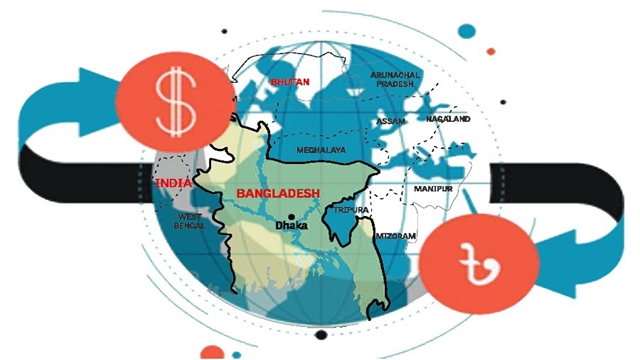SAM
Published:2018-05-30 17:41:38 BdST
Country’s NFA rises 3.51pc in March
FT ONLINE
The latest statistics of the Bangladesh Bank (BB) shows that the country's Net Foreign Assets (NFA) registered a 3.51 per cent growth in March.
The NFA used to expand at double-digit rates even two years back.
According to economists, the fall in the NFA growth is mainly due to the high demand for the US dollars in the money market to meet import payments.
Bangladesh's import has been increasing fast, and it was recorded around 26 per cent in terms of opening up of letters of credit (LCs).
NFA of a country is the value of the assets that the country owns abroad, minus the value of the domestic assets owned by foreigners. The NFA position of a country reflects the indebtedness of that country.
The economists believe that the central bank's step to depreciate the local currency (Taka) against the US dollar may be an effective tool to raise NFA.
However, many of them are sceptic over impact of the step to scale up NFA and improve the overall balance of payment (BoP) situation.
"We're yet to see any dramatic changes in the country's NFA, but it will take time," said Dr Mustafa K Mujeri, executive director at the Institute for Inclusive Finance and Development (InM), a research organisation.
Mr Mujeri, who also served as the chief economist at BB, said the authorities concerned should analyse further the reasons behind the weak external accounts.
"BB may intervene in the foreign exchange market, but it is not a solution. If we fail to detect the real reasons, they will affect other indicators and destabilise the economy," he opined.
The country's current account deficit is now over US$ 7.0 billion.
On the other hand, Dr M A Taslim, professor of economics at the University of Dhaka, said that the depreciation pushes up prices of imported commodities in the market.
Bangladesh's weighted average exchange rate between Tk and dollar has been increasing for last eight months. It was Tk 80.80 in September 2017. In December 2017, it was Tk 82.70, and in March 2018, it stood at Tk 82.96.
"The depreciation actually affects the limited-income group of people. It is likely to cause inflationary pressures," he noted.
In the meantime, the importers, who are battling with foreign currency shortage, said the depreciation of local currency is affecting them seriously.
"Even many banks request us to manage dollars from other banks when we go to them for opening LCs," said Abul Bashar, chairman of Khatoonganj-based BSM Group, one of the largest importers in the country.
He said the importers fail to predict the market scenario as a result of such volatile trend in the foreign exchange market.
Mr Bashar said the prices of various commodities have been low in the international market for a long time.
"But the local consumers are paying high price (to buy those here) simply because of the rising price of dollars," he added.
On the other hand, the exporters opined that the increasing trend in dollar rate is helping them to remain competitive in the global market.
"Definitely the depreciation is a good news for us, as it makes us more competitive," said Abdus Salam Murshedy, managing director at the Envoy Textiles Ltd.
He said he knows the impact of depreciation on the NFA, but depreciation should be in such a magnitude that can keep the traders competitive in the global market.
Mr Murshedy also noted that many of Bangladesh's competing nations took a big step in terms of depreciation.
"Turkey has seen a big jump in its currency depreciation. I don't want it. I want the depreciation to keep me competitive," he concluded.
Unauthorized use or reproduction of The Finance Today content for commercial purposes is strictly prohibited.


